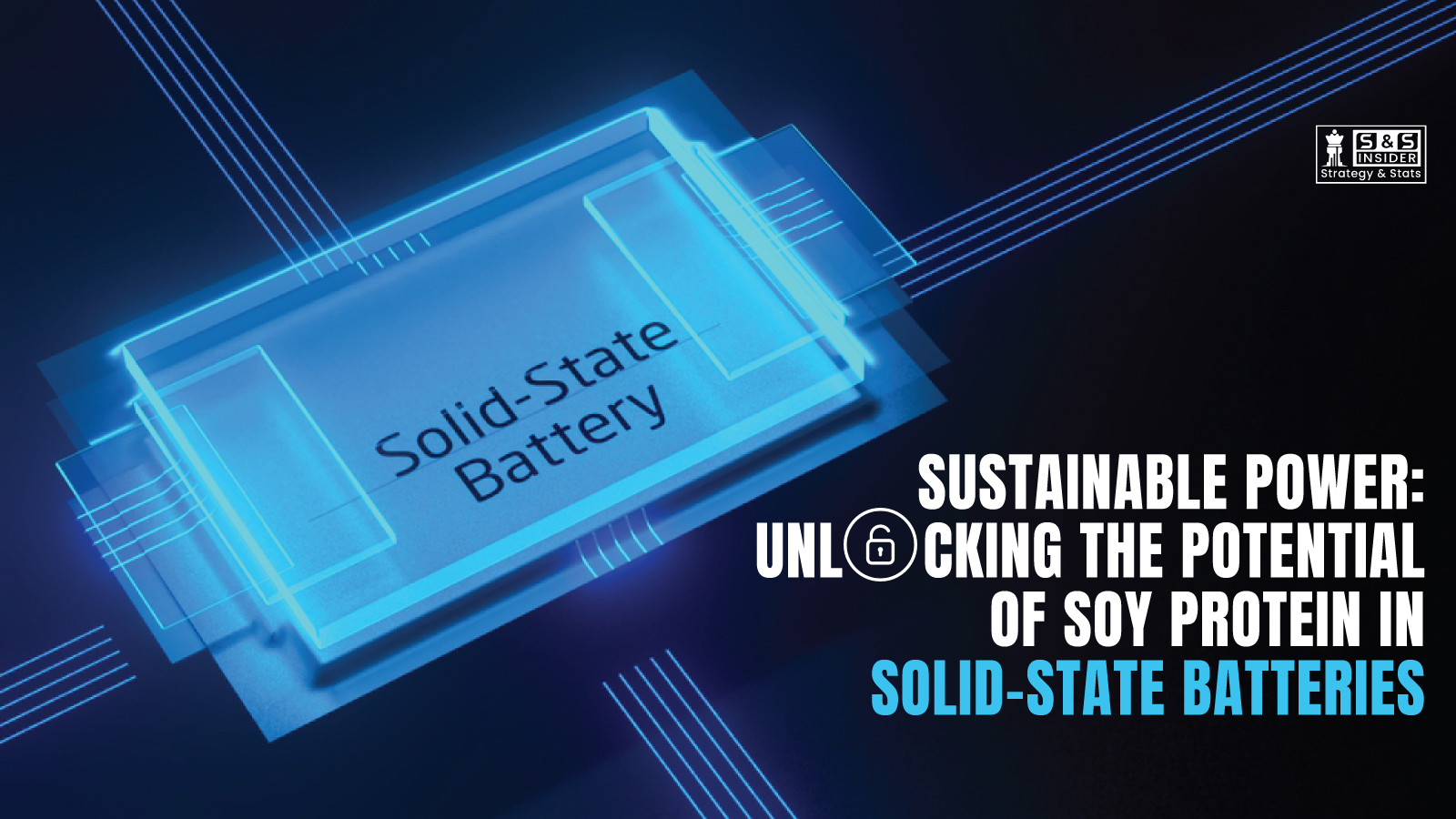
As the demand for high-performance, safe, and sustainable energy storage grows, researchers are turning to innovative, renewable materials to revolutionize battery technology. One promising breakthrough is the use of soy protein as a key component in solid-state batteries, potentially reshaping the future of green energy storage.
Understanding Solid-State Batteries and Their Advantages:
Solid-state batteries (SSBs) represent the next step beyond traditional lithium-ion batteries. Unlike conventional batteries that use liquid electrolytes, SSBs utilize solid electrolytes to allow ions to flow between the electrodes. This shift offers multiple benefits including faster charging, higher energy densities, and improved safety by reducing flammable and toxic components.
However, challenges remain in finding suitable solid electrolyte materials that balance high ionic conductivity, mechanical flexibility, and environmental sustainability. That’s where bio-based materials such as soy protein come in as game-changing innovations.
Why Soy Protein?
Soy protein, a renewable and abundant resource primarily used in food and medical industries, is emerging as an eco-friendly candidate for solid electrolytes. Chemically modified soy protein demonstrates inherent properties conducive to battery use:
Ionic conductivity: Its molecular structure can be altered to facilitate lithium-ion movement efficiently.
Flexibility and durability: The protein forms a tough yet flexible 3D network to withstand the physical stresses of battery cycling.
Biodegradability and low toxicity: Offers a greener alternative that minimizes environmental impact during manufacturing and disposal.
Research from Tsinghua University in Beijing shows that soy protein-based electrolytes enable batteries to reliably perform at elevated temperatures (up to 120°C), a critical advantage over conventional lithium-ion cells that degrade rapidly at such conditions. These batteries maintain nearly 75% capacity after over 800 charging cycles under heat stress, highlighting their durability and promise for real-world applications.
Scientific Innovations and Performance Breakthroughs:
Through chemical modification and material engineering, scientists have enhanced soy protein's ionic conductivity and mechanical properties. The resulting material forms a stable, thin interface between the electrolyte and electrodes, preventing performance deterioration over time caused by interface layer buildup, a common problem in many electrolyte materials.
The soy-based electrolyte exhibits:
High ionic conductivity (around 7.95 × 10⁻⁴ S/cm at 60°C).
A high lithium-ion transference number (up to 0.78), which improves ion transport efficiency.
Excellent mechanical flexibility and strength combining soft and hard network layers.
These advances enable solid-state batteries to charge faster, operate safely at high temperatures, and retain stable performance for thousands of cycles. Compared to traditional organic polymer electrolytes (like polyethylene oxide), soy protein electrolytes release significantly fewer volatile organic compounds, reducing harmful emissions and environmental hazards during battery production.
Environmental Impact and Sustainability:
Lifecycle assessments reveal that soy protein-based electrolytes considerably reduce acidification, carcinogen release, and fossil fuel consumption associated with battery manufacturing processes. The use of a biomass-derived material like soy protein aligns with global sustainability goals, offering:
Reduced waste due to biodegradability.
Lower reliance on scarce, toxic, or expensive raw materials.
Potential for cost-effective, large-scale production given soy’s abundant availability worldwide.
Furthermore, soy protein’s biocompatibility minimizes risks related to toxicity, improving the safety profile not just during use but also at end-of-life disposal.
Applications and Future Potential:
Soy protein-enhanced solid-state batteries hold considerable promise for a wide range of applications:
Electric vehicles: Reliable performance at high temperatures and long lifespan can advance EV efficiency and safety.
Consumer electronics: Faster charging and greater durability improve user convenience and device longevity.
Extreme environment applications: High thermal stability suits aerospace, military, and industrial energy storage needs.
Ongoing research, including projects funded by organizations like NASA and supported by the Kansas Soybean Commission, aims to further refine these bio-based electrolytes. Efforts focus on optimizing ionic conductivity, mechanical resilience, and scalable fabrication techniques suitable for commercial production.
Challenges and Research Directions:
While soy protein solid-state electrolytes are promising, several hurdles remain before mass adoption:
Manufacturing scale-up: Processes must be refined to ensure consistent material quality.
Cost competitiveness: Although soy is inexpensive, integrating biopolymers into high-tech batteries requires economical production methods.
Material optimization: Enhancing ion transport and interfacial stability for diverse battery chemistries is ongoing.
Lifecycle validation: Long-term environmental benefits and recycling pathways need further assessment.
Researchers are employing advanced techniques like data-driven design, electrospinning nanofiber membranes, and polymer-filler hybrid systems to overcome these challenges.
Conclusion: A Sustainable Battery Revolution
The advancement of soy protein as a battery electrolyte marks a transformative step toward eco-friendly, high-performance solid-state batteries. By combining natural abundance, biodegradability, and impressive electrochemical properties, soy protein-based electrolytes may soon enable safer, more efficient batteries that support the green energy transition.
This innovation not only drives technological progress but also aligns with global efforts to reduce environmental impact and reliance on critical raw materials in battery manufacturing. As research pushes forward, soy protein could become foundational in the sustainable energy storage solutions of tomorrow.